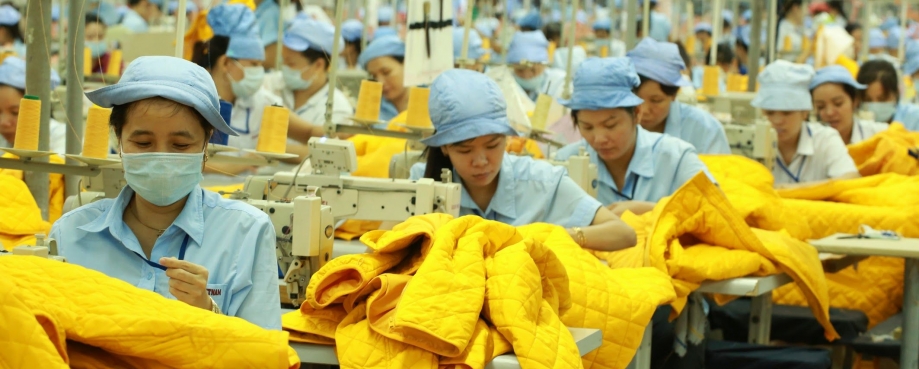
US$9 trillion. That’s a 9 followed by 12 noughts. It’s also how much women in poor countries could gain each year if their pay and access to jobs equalled that of men.
New advanced training course: Human rights due diligence
I want to start this blog by quoting leading European businesswoman Simona Scarpaleggia, co-chair of the UN’s High-Level Panel for Women’s Economic Empowerment: “Economic empowerment is about rights, justice and creating a movement that will leave no woman behind.”
The UN Panel was set up to ensure that women’s economic rights were placed firmly at the centre of the global conversation and to accelerate progress under the 2030 Agenda for Sustainable Development, the world’s action plan to embed prosperity across the planet.
As ETI members know, human rights cannot be divorced from business operations.
With women making up the clear majority of workers in the garment trade’s supply chains for example – as well as amongst those who pick and pack our food – the rights of women must be front and centre of efforts to promote respect for workers' rights.
The UN’s 7 primary drivers to unlocking women’s potential
ETI is pleased that the UN has outlined seven primary drivers which will unlock women’s potential – enabling women to fully participate in national economies and achieve financial independence:
- Tackling adverse norms and promoting positive role models.
- Ensuring legal protections and reforming discriminatory laws and regulations.
- Reducing and redistributing unpaid work and care (I suspect NGO members such as Oxfam GB and WIEGO will be very interested in tracking progress on this driver).
- Building digital, financial and property assets.
- Changing corporate culture and practice.
- Improving public sector practices in employment and procurement.
- And…strengthening visibility, collective voice and representation.
Of course, these are all huge undertakings, but once formally recognised, work can begin on addressing them. In every country worldwide.
In particular, ETI is interested in the latter three points, as they directly relate to our Base Code on labour standards.
ETI’s commitment to women’s empowerment
Sabita Banerji, our Senior Knowledge and Learning Advisor confirms that ETI is committed to “shining a stronger light in all our work, our resources, our training and communications on women workers”. She says that means understanding what is holding women back and hindering them from fully attaining their rights.
As part of our 2020 strategy, we have two strong commitments to women workers:
- To support members to review the impact of gender inequality and other forms of discrimination in their supply chains and to develop strategies to address this.
- To support women's leadership in trade unions and civil society organisations in four sourcing countries.
Sabita also explains that we’re already seeing progress in our established supply chain programmes:
"Alongside Oxfam and our supermarket members, ETI is part of the Moroccan Better Strawberries initiative. Morocco is the fifth largest exporter of strawberries in the world, and women make up most of the workforce. Better Strawberries works to improve women’s pay and conditions and last year an evaluation found that, 'women know their rights and increasingly refuse a job that does not pay the minimum wage'. Meanwhile, in Bangladesh, we are running workshops for women workers in garment factories supplying major retailers. The aim is to encourage women to play a role in the Participation Committees that are crucial to worker-management dialogue. We hope that more of them will become as empowered as Shamina, to whom we introduced you, earlier this year."
But I started with Simona, so I want to give her the final word. And it's a warning: “If we do not act, we are missing out on huge gains for global sustainable development and economic growth.”
Find out more about ETI's work on women's empowerment.
